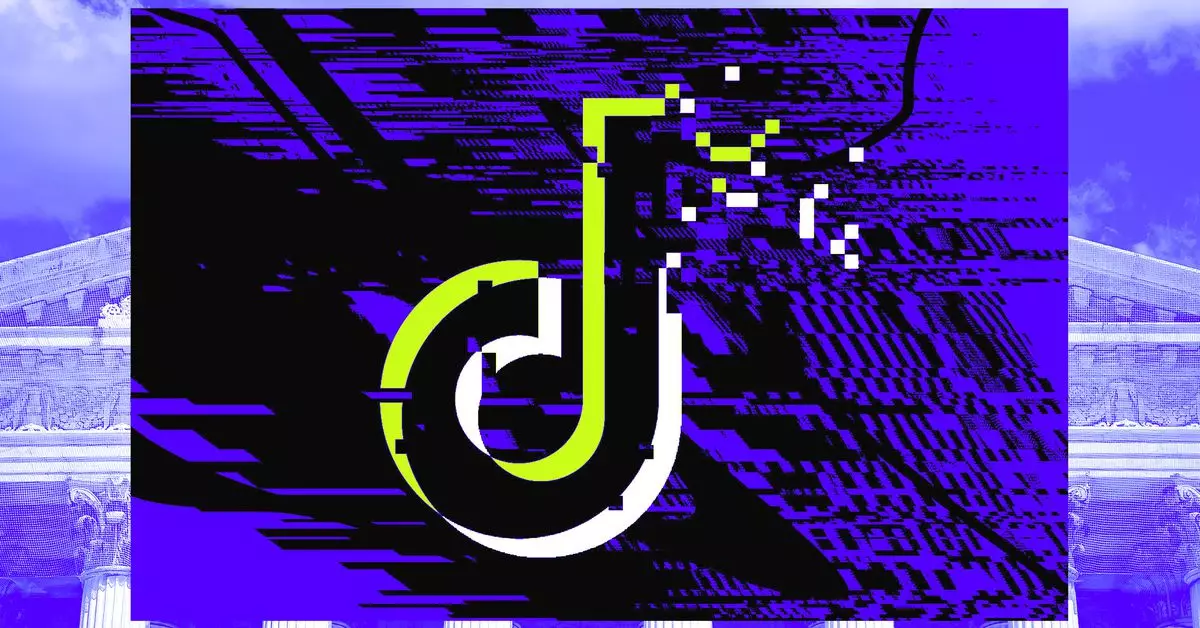In an unexpected move, former President Donald Trump has directed the Department of Justice (DOJ) to refrain from enforcing a rule that compels TikTok to separate from its Chinese parent company, ByteDance. This directive serves to extend the timeline for a potential sale, effectively undermining the repercussions faced by American companies such as Apple and Google involved with TikTok. This article dissects the implications of Trump’s executive order and its potential ramifications in the politically charged atmosphere surrounding TikTok.
The backdrop to Trump’s recent executive order can be traced back to ongoing national security concerns associated with TikTok—an application owned by a foreign entity that has garnered immense popularity in the United States. Trump previously issued an order demanding a separation of TikTok from ByteDance during his first term in 2020, citing national security risks and data privacy issues. However, with this new order, he seems to be taking a different approach, aimed at circumventing an existing bipartisan law that came into effect on January 19.
This executive order seeks to pause enforcement of the existing statute for a period of 75 days, during which time the administration aims to assess the best course of action. While it ostensibly allows the companies involved a temporary respite from impending penalties, it hinges upon several legal ambiguities, making its efficacy questionable.
The legal landscape surrounding Trump’s directive is fraught with ambiguities. The bipartisan law provided for a 90-day extension, contingent upon ByteDance announcing a sale to a non-foreign adversary-based company. Yet, to date, no such announcement has been made, leaving the administration’s legal standing precarious. Critics argue that while the executive order attempts to shield companies from immediate penalties, it fails to address whether the law permits such an extension after the January deadline. Thus, Trump’s maneuver raises significant questions about the legality of his actions and the extent of presidential authority in altering statutory mandates.
The implications of this executive order are particularly significant for tech giants associated with TikTok. Legal experts emphasize the potential for astronomical penalties, which could reach up to $850 billion for violating the statute. The specter of litigation looms large, prompting companies to tread cautiously in their dealings with the platform. Even with Trump’s assurances, many companies remain apprehensive about re-engaging with TikTok, as the threat of long-term repercussions adds to the complexity of the decision-making process.
In light of this executive order, corporate entities must navigate a treacherous waterscape. While Trump’s directive may offer some relief, it lacks the enforcement power typically needed to assure these companies against legal repercussions. The explicit statement within the order, clarifying that it does not create any enforceable rights against the United States, further complicates the prospects for companies like Apple and Google. They may wish to cooperate with TikTok, but the specter of litigation and financial penalties creates a significant barrier.
Moreover, companies face a dual challenge: weighing the risks of engaging with TikTok against their desire to avoid potential backlash from Trump himself. This quandary mirrors the broader tension within corporate governance as external political pressures increasingly influence business decisions.
As the situation with TikTok unfolds, uncertainty prevails regarding the app’s future in the U.S. market. Trump’s announcement of plans for a “joint venture” in which the U.S. government would allegedly own 50% of TikTok remains nebulous, with no clear roadmap or mechanics outlined for such an arrangement. This proposal raises more questions than it answers, further deepening the complexity of an already convoluted issue.
The landscape of TikTok and U.S. foreign policy is in flux, and its resolution requires a careful balancing act of legal frameworks, national security interests, and corporate governance. The executive order serves as a significant chapter in this ongoing saga, yet its actual impact hinges on forthcoming negotiations, legal interpretations, and the willingness of corporate entities to engage with an app still mired in regulatory and public opinion controversies.
To summarize, Trump’s attempt to alter the enforcement of existing laws surrounding TikTok is laden with complexities that illustrate the intersection of politics, law, and business in contemporary America. As all parties navigate this convoluted scenario, the need for clarity and forthrightness in policy application has never been more critical.


Leave a Reply